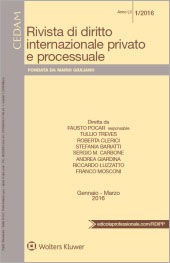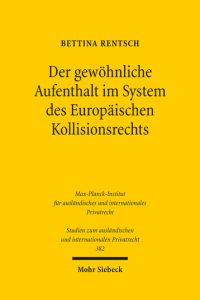I have just received this Call for papers related to the International Seminar “50 Years of EU Private International Law in Therapy”, organized by the Spanish Association of Professors of International Law and International Relations (AEPDIRI) and the University of Valencia (Spain). It will be held in Valencia on January 25th, 2018.
The purpose of the seminar is to critically examine the five decades of codification of private international law in the EU, assessing its achievements and shortcomings, as well as its interaction with existing national and conventional responses, and with the practice of legal practitioners. In short, the seminar seeks to assess the regulatory and policy outcomes and their impact on the activity of EU operators and citizens. It covers the three classic fields of international jurisdiction, applicable law, and circulation of judgments and public documents in the European Union, without focusing on any specific act adopted by the EU. Future prospects for the process will also be addressed, considering the regulatory proposals on which the European Commission is working.
All those interested in presenting a paper should send their proposal by November 30th, 2017, to seminarioactualidad.dipr2018@aepdiri.org. For guidance purposes, the following topics are suggested (non-exhaustively):
1. Codification techniques in EU private international law.- The need for Regulations; advantages and disadvantages of sector-specific codification; external competences of the EU; interaction with the Hague Conference (HCCH) and other codification forums.
2. Scope and limitations of mutual recognition.- Enforcement of judgments; effectiveness of civil status documents; restrictions on recognition.
3. Interaction of EU private international law with the Spanish model of private international law.- Close and open-ended Regulations; scope of autonomous private international law; intra-EU and international private relations.
4. Impact of private international law on legal practitioners.- Review of the concept of authority; contentious and voluntary jurisdiction; out-of-court procedures; scope of notarial activities in the EU; implementation of EU private international law by public registry officials.
5. The “interregional” dimension of the EU private international law model.- Reference to multi-legal systems and their internal dimension; review of the Spanish model of interregional law.
Applications must be accompanied by the following documents in Word format:
-1. A document with the following information only: title of the proposal; name of the candidate; home university; academic position; indication of whether the candidate is member of AEPDIRI.
-2. Summary of the proposal (without indication of the name of the candidate, but only the title, contents and 3-5 keywords), of 1000-1500 words.
-3. Brief CV (max. 5 pages).
A book will be published bringing together all the papers and communications submitted –or accepted without oral presentation– for this Seminar.
 It features two articles and three comments. Read more
It features two articles and three comments. Read more
